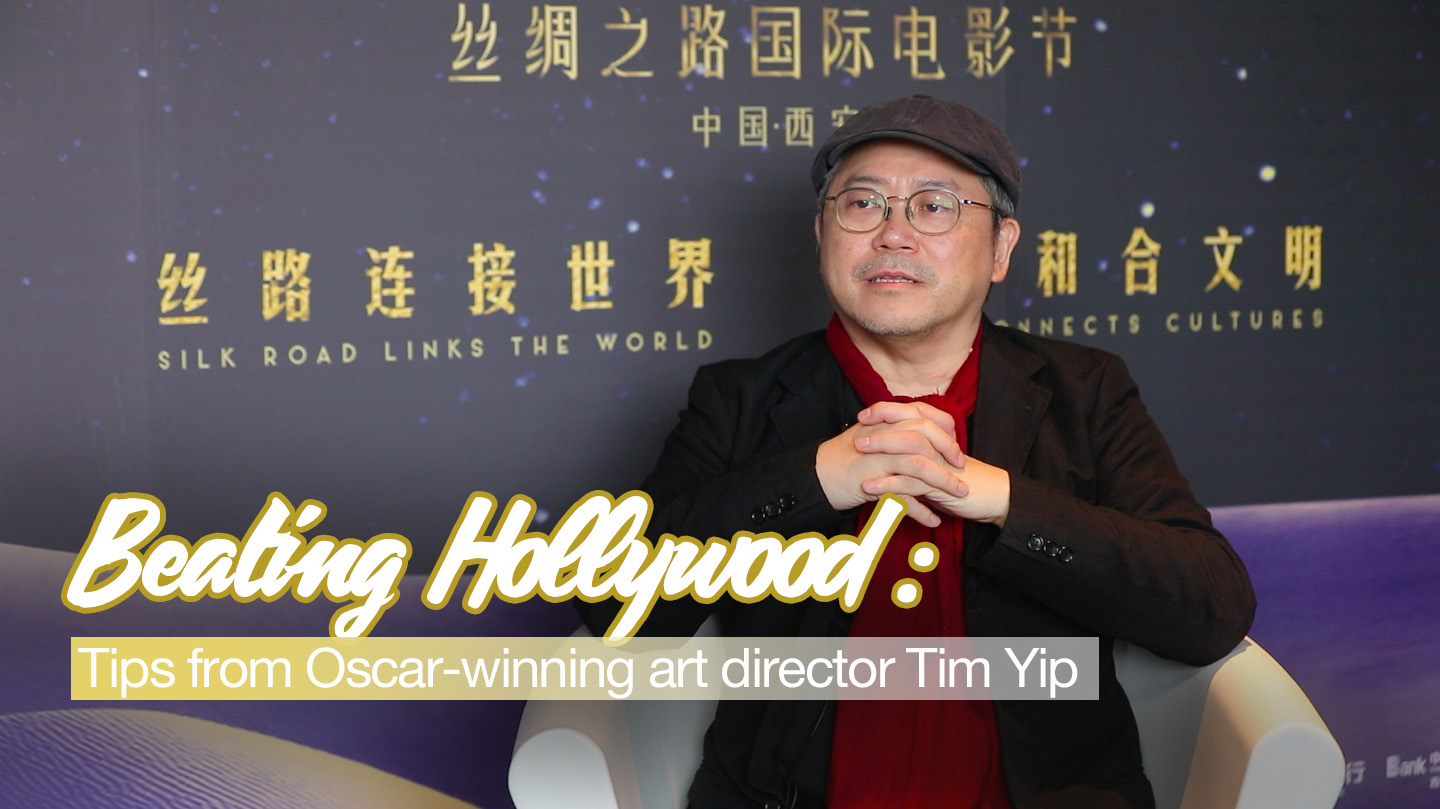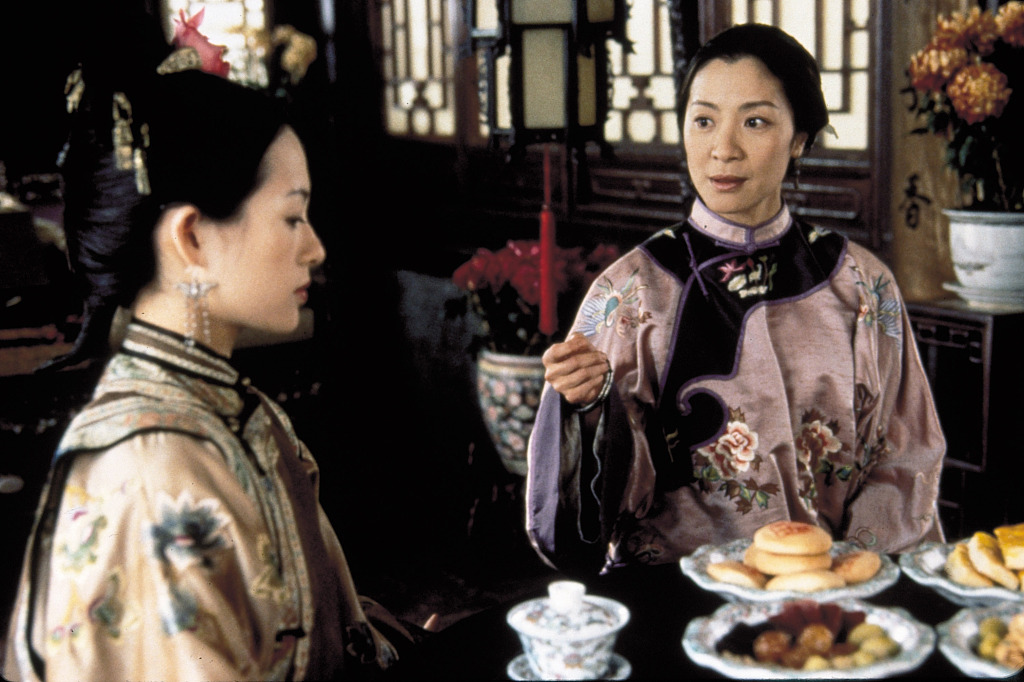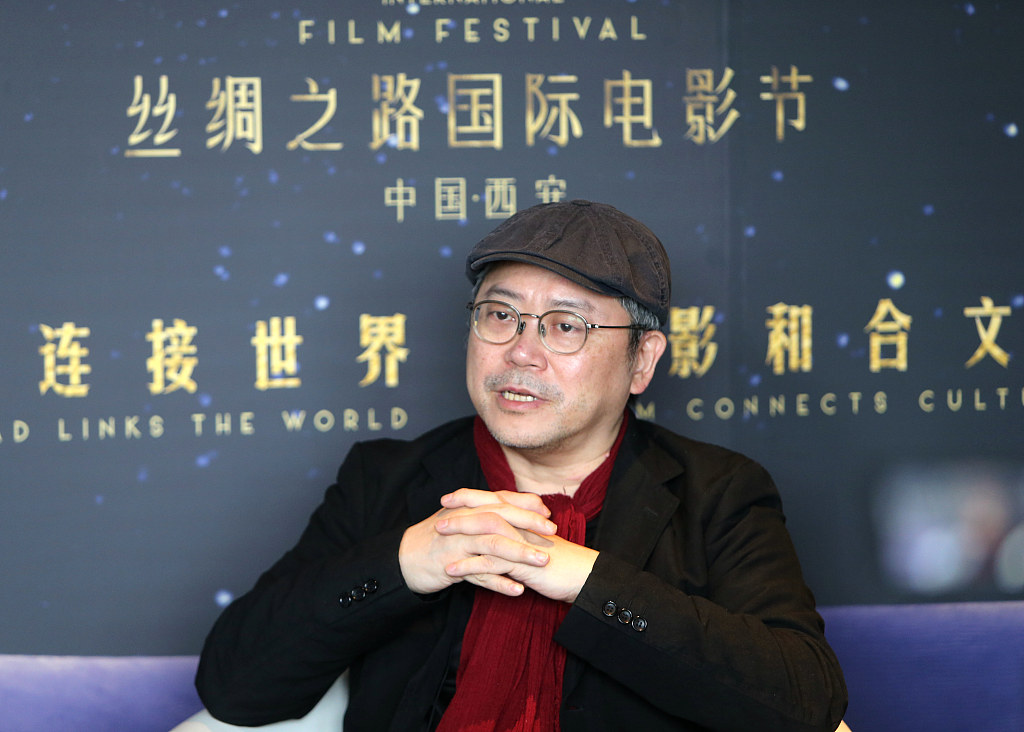04:16

Tim Yip, also known as Ye Jintian, the world-renowned art director, visual artist, stage and costume designer as well as the first Chinese to win an Academy Award, shared his views on arts and films with CGTN during the 7th Silk Road International Film Festival (SRIFF) in Xi'an, northwest China's Shaanxi Province.
'Films and arts are inseparable'
Tim Yip has worked with many influential film directors and artists across the globe and is an Academy Award-winning art director. Once depicting himself as the artist who really loves movies, he believes that films and art are inseparable.
He won an Oscar for the best art direction in the martial arts blockbuster "Crouching Tiger, Hidden Dragon" in 2001, making him more outstanding in the film industry than in other fields like theater, costume design and visual arts which he is also good at.

A still from the film "Crouching Tiger, Hidden Dragon." /VCG
A still from the film "Crouching Tiger, Hidden Dragon." /VCG
Yip said before shooting this film, he spent a long time studying the art of dance in different dynasties in ancient China, and held many exhibitions as well as participated in many large-scale arts festivals in Europe.
"Films and arts are inseparable," he said, adding that he would spend a lot of time understanding how the director sees the world, which helps him decipher what kind of a world they would like to see. And after that, he will try to find the most lively and diverse ways to present what directors try to express in the film work.
As for how Chinese cinema can become more international, Yip told CGTN that when the Chinese outshine foreign directors in arts, they will shoot films others can't compete with.

Tim Yip introduces the costumes in the film "The Banquet". /VCG
Tim Yip introduces the costumes in the film "The Banquet". /VCG
He also said that director Wim Wenders is one of the famous directors in the world that has a great influence on his creation and personality. Inspired by the way he shot his notable documentary "Notebook On Cities & Clothes (1989)," he noted that Wenders has changed the way to approach film documentaries. For example, the film "The Salt of the Earth" was shot in a dramatic way by presenting many striking photos.
Apart from dedicating himself to the film industry, Yip has held many exhibitions showcasing his costumes, photographs, installations and videos across the globe. Yip once pointed out the concept of "New Orientalism" aesthetic, which has spanned across films, dance, theater and opera, and it is about conveying the aesthetic of unique Chinese culture to the international world.
"The 'New Orientalism' concept is not restricted to culture, it is open to all fields," he explained. "I have done a lot of study on the Chinese philosophy about 'Xu Shi Bing Zhi,' it is something like the existence and non-existence can come together."

Tim Yip receives an interview during the 7th Silk Road International Film Festival. /VCG
Tim Yip receives an interview during the 7th Silk Road International Film Festival. /VCG
'The pandemic gives me more time to think'
The COVID-19 pandemic might have badly hit the global film industry, but it has prompted many people to calm down and rethink the world and life.
"The pandemic on the other hand, gives me more time to think," he said, adding that prior to COVID-19, the world was moving at breakneck speed, forcing people to do many things at the same time. It was propelling people to rush forward. "While in the pandemic era, I have been forced to calm down and appreciate the depths of time."
When it comes to what efforts should be made to adapt to climate change in the post-pandemic era, Yip noted that we should do something for our planet. When he was once invited to visit Norway, he said they could see shrinking glaciers, and they looked like "corpses" because there was electronic and kitchen waste in the water, which was a very serious matter.
Reporter: She Jingwei
Videographer: Danzeng Jiancuo
Video editor: Chen Shi